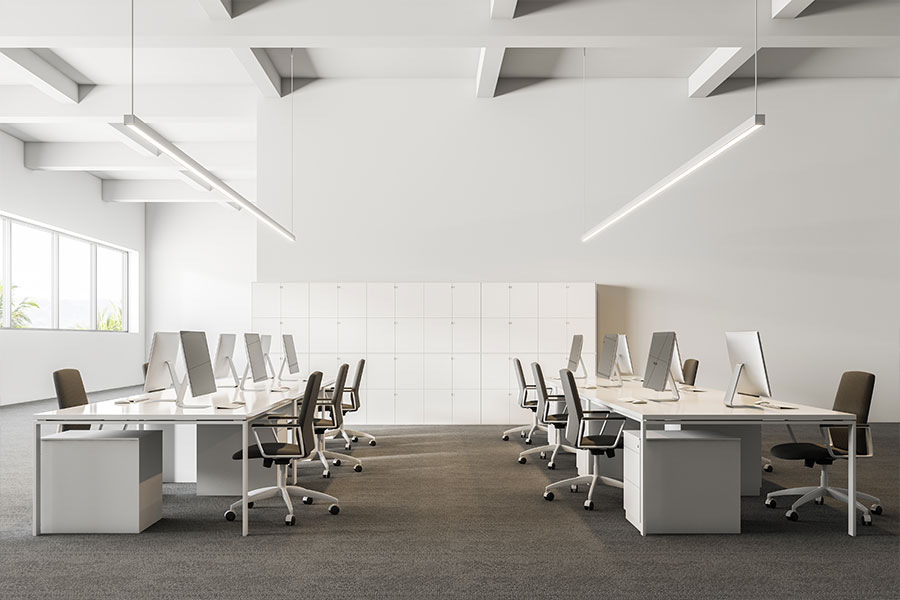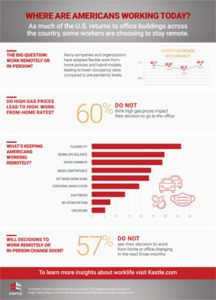According to the Kastle Back to Work Barometer, the average daily workplace occupancy level in major US cities has been stalled since late April at around 40-45% of what it was prior to the pandemic. What behavior is being reflected in this apparently consistent reduction in daily office attendance? Could this stagnation be related to people enjoying their summer holidays and vacations? Possibly, but not likely, as these rates were already at that level prior to the typical summer vacation months that begin in June.
We also happen to be in the midst of significant inflation, so perhaps America’s workers prefer to work from home to avoid the added cost of paying record-breaking gas prices? To discern the extent to which increasing gas prices factored into the decision of workers to commute into the office or work from home, we surveyed 725 college-educated workers in major metro areas.
The most eye-opening response was that 60% said gasoline prices did not impact their daily desire to work from the office. Furthermore, 57% did not see their decision to work from home or office changing in the next three months.
Interestingly, when we delve deeper into Kastle’s access data, and look at average occupancy by person and by day, as opposed to the total average for across all days in the entire week as shown in the Back to Work Barometer, it appears this lower 40-45% average does not reflect the fact that most workers, far more than 40%, are indeed going into the office each week, just not all on the same day of the week. This leads us to believe this behavior is more of reflection in the adoption of hybrid work behavior, mixing days working from home and working the office.
While daily attendance is down, people are still coming into the office and heightened gas prices are not keeping them from coming in more frequently. It appears Americans are just embracing hybrid work because it provides flexibility, work-life balance, requires less commuting, and is overall more comfortable.
It looks like hybrid work is the new reality. Hopefully your workplace is adapting to a variable routine. Kastle can help you manage that transition safely and more effectively with smart access systems. This access data can tell you who is in the workplace when so that you can monitor and manage the security of the hybrid workplace effectively.


